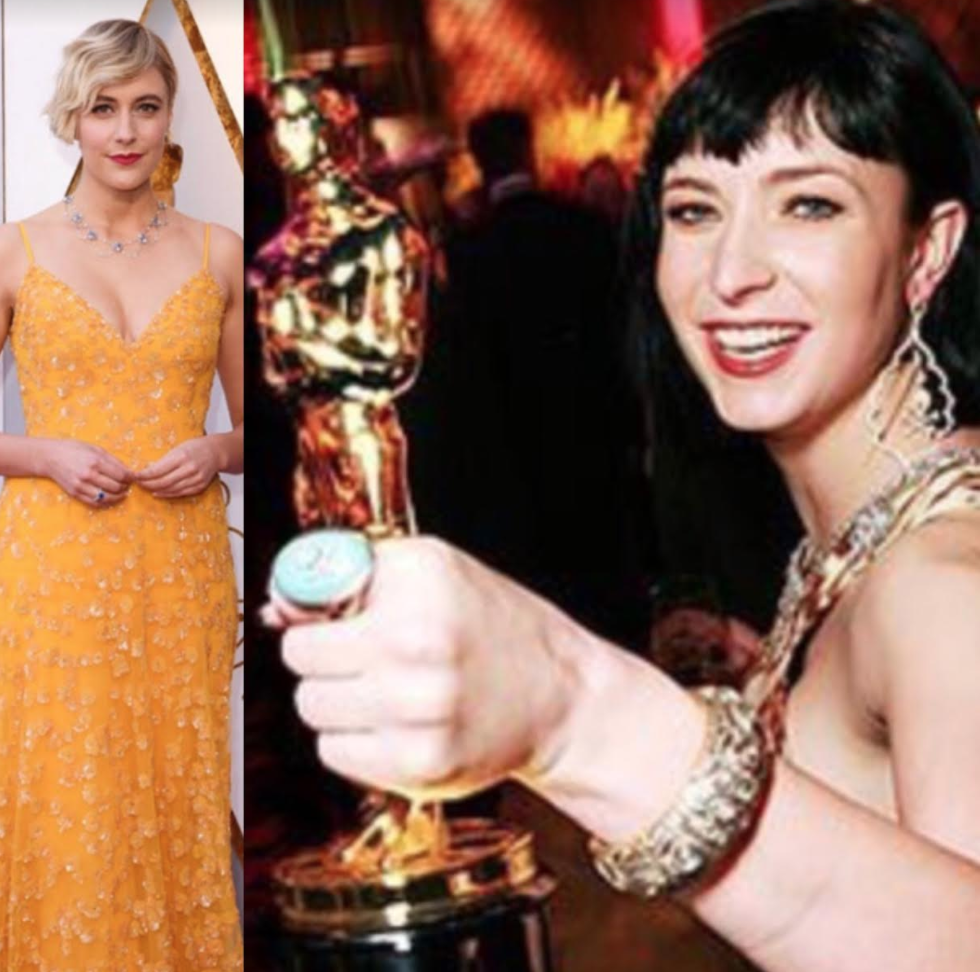Notwithstanding the fact that Greta Gerwig broke one of the still ample barriers a female could in film by being nominated for both Best Director and Best Original Screenplay this year, movie viewers seem to be forgetting about a very special former stripper/copywriter who placed a crack in the film canister-crafted ceiling for her 2008 win for Best Original Screenplay. The movie, in case you’ve already forgotten about Ellen Page’s straight era, was Juno, and the subject was, at the time, fairly avant-garde for the Academy to consider. Incidentally, this ceremony, ten years ago, was also a milestone number–the 80th Annual Academy Awards to this year’s 90th. And as a milestone it was perhaps only fitting that Cody should win for her very first produced screenplay, directed by Jason Reitman (who she’s about to collaborate with again on Tully, starring Charlize Theron, the gem of Young Adult).
Lady Bird, too, marked Gerwig’s first solo writing effort (all other projects had been collaborations, mainly with boyfriend Noah Baumbach), and is, likewise, extremely personal and autobiographical in tone. Cody, who spent enough time living in Minneapolis to write a blog called The Pussy Ranch based on her experiences there (including her stripper period, repurposed for the 2005 memoir, Candy Girl: A Year in the Life of an Unlikely Stripper), sets the narrative of Juno in a suburb of the Twin Cities, where Juno still manages to find ways to get into trouble via teen pregnancy. While Cody would go on after Juno‘s success to create a wealth of equally as daring and tongue-in-cheek projects, including the highly underrated Jennifer’s Body and Young Adult, it appears she has never recaptured the mainstream commercial success and accolades of Juno.
Gerwig, conversely, has become the darling of the critics and audiences alike (granted, after many years of appearing in “under the radar” indie films like Greenberg and Damsels in Distress), perhaps because, at the core of it all, Hollywood still wants to worship a woman who is prim and virtuous, not some “trashy” former pole dancer.
What’s more, as time goes by, the datedness of Juno‘s dialogue only becomes more noticeable, with lines like, “Wizard” and “Honest to blog?” speaking to something in the early onset of the youth’s internet vernacular-oriented mind. Self-aware in its irony Newspeak, if you will. Lady Bird is likely to avoid this trap as a result of already deliberately being set in the “past” (2002, a testament to the persistent and unshakeable obsession with the early 00s, a time when we now realize we might still have had a chance to get it right before the fuckery of now). And because Lady Bird‘s not quite as quippy (though also eponymous) heroine doesn’t get herself knocked up after losing her virginity to Kyle Scheible (Timothée Chalamet), the Paulie Bleeker (Michael Cera) of the story–except far less approachable for not being as much of a dweeb–she’s presumably more “relatable.”
The process behind what it took for each woman to get their movie made was also very different. Where Gerwig found it relatively easy to secure financial backing from IAC Films and Scott Rudin Productions, Cody’s journey was a bit more arduous as she had no previous credits in the business. Writing in “layers of corporate filth” at a Starbucks in Target, Cody rightly had a cynical attitude about whether the project would ever be produced (ultimately getting picked up by John Malkovich’s production company, Mr. Mudd). It is possibly because of this imbuing of Cody’s own jaded mindset into the script at the time that Juno feels far more rightfully angst-ridden than Lady Bird, which often smacks of the prosaic problems of a bored white girl, who, like all suburban white girls yearns to be special and have the excitement associated with that specialness (which is one of many reasons the film is so resonant to the denizens of Sacramento).
So yes, Greta Gerwig has aided in the gradual removal of these blockades that female filmmakers have had to face since the dawning of the medium. But don’t you ever forget that Cody was the original “quirky,” autobiographical-oriented screenwriter with a protagonist-as-extension-of-the-self method. And, to boot, she actually won her award.
P.S. I would mention Sofia Coppola’s groundbreaking win for Best Original Screenplay for Lost in Translation, but 1) she doesn’t have the same aura of “kookiness” and “campiness” as the Cody/Gerwig juggernaut and 2) she didn’t rise from nothing and no connections to carve out a place for herself.






















